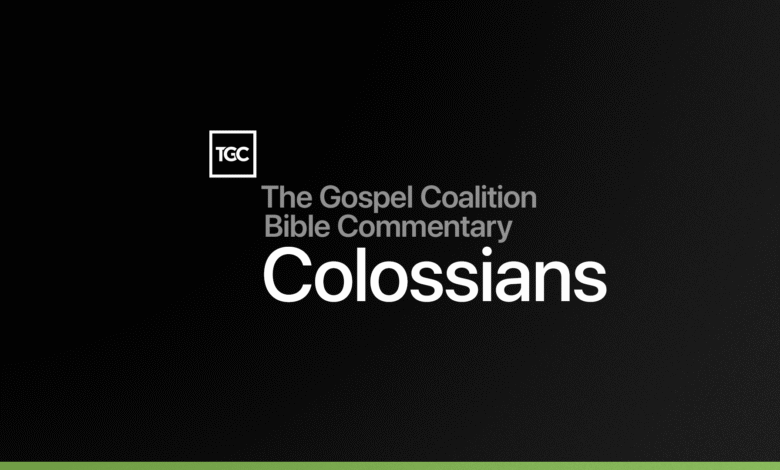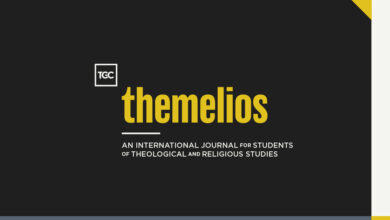Colossians | Commentary | Alistair I. Wilson

3:5–11 At this point, Paul begins a sustained exhortation (“therefore”) based on the theological argument he has outlined previously, and particularly in 3:1–4. In verses 5–11, Paul calls the Colossians to “put off” all that is inconsistent with their status in Christ. His instructions include two “vice lists” in verse 5 and verse 8. These will be balanced by a “virtue list” in verse 12. In both cases, these lists should be regarded as indicative of what character traits should be shunned or cultivated. They are not intended to be exhaustive. Paul frankly acknowledges that the vices named have been part of the Colossians lives in the past. Perhaps this suggests that he is writing primarily to Gentiles, but Paul would not hesitate to recognise that all human beings by nature have sinned and fall short of the glory of God (Rom 3:23). While inappropriate sexual behaviour is certainly included among the named vices, it is important to recognise that Paul also lists many internal attitudes such as greed and anger and inappropriate use of speech, including lying within the Christian community (3:9). All of these actions are inconsistent with the fundamental transformation that has taken place in a Christian’s life (3:9–10). Verse 11 is similar to Galatians 3:28. To be in Christ is the most fundamental identity a person can have.
3:12–14 The following paragraph provides a beautiful portrait of the community life of the people of God. Although the main emphasis of the passage is instruction, including many “imperatives,” there are several references to the “indicatives” of God’s prior gracious disposition and actions towards the Colossian believers, including the initial statement that undergirds the whole paragraph. It is because of Paul’s confidence that his Christian brothers and sisters have been “chosen” in God’s eternal purposes, set apart as “holy” to him, and are “dearly loved” (by God, in this context) that he can give the following instructions.
Paul develops the metaphor of “putting off” and “putting on” (3:9) with a call to “put on” various virtues (3:12ff). Whereas Paul provided “vice lists” in 3:5–9, he now provides a “virtue list.” The list of virtues is similar, but not identical, to what he includes in the list of the “fruit of the Spirit” in Galatians 5:22–23:
But the fruit of the Spirit is love, joy, peace, patience, kindness, goodness, faithfulness, gentleness, and self-control (Gal 5:22–23).
put on compassion, kindness, humility, gentleness, and patience (Col 3:12)
The similarities indicate that there was a recognisable cluster of character traits Paul considered to be core to Christian character. The differences suggest that there was no single definitive list of virtues but that each list is exemplary in nature. Although not included in 3:12, “love” and “peace,” both of which are part of the list of virtues in Galatians 5:22–23, appear in separate statements in 3:14 and 3:15, respectively.
That Paul does not anticipate perfection among believers is clear from the two “one another” participial phrases in 3:13a that follow the list of abstract nouns. Although the CSB uses the same English translation (“one another”) in both cases, the Greek terms are different. In this context, however, they function as equivalents (BDAG; see the similar expressions in Eph 4:32). Christians are to “bear with one another” and “forgive one another.” These actions are counterparts of each other. The participles suggest that these are ways in which the virtues that have just been listed are demonstrated in action. The first expression requires tolerance and suggests that Christians should not grasp every opportunity to take offence at the words and actions of other believers. The second expression requires that the one who has been treated badly should forgive. The verb used here is related to the Greek term charis (frequently translated as “grace”). Together these expressions call for both restraint in responding to perceived wrongs and readiness to forgive such wrongs. Although the conditional clause (“if anyone has a grievance against another”) suggests a hypothetical situation, the implication is that such opportunities will certainly arise in a Christian community. Paul is highly realistic regarding the effect of sin in every believer, and, while he is confident in the transforming power of the Holy Spirit, he anticipates that even the most mature believer may speak or act in a way that would provide an occasion for offence to be taken. Christian character shows itself by not taking advantage of such occasions for the good of other individuals and of the body as a whole but instead defusing them by means of forgiveness.
The theological ground for such forgiveness in provided in a “just as . . . so also” clause taht repeats the use of the verb “to forgive” (3:13b). Slightly altering the CSB rendering, we might translate it, “Just as the Lord has forgiven you, so also you.” The final plural personal pronoun places emphasis on the obligation of the Christian community to reflect together their understanding of how the Lord has treated them.
The list of virtues is given a kind of completion by 3:14: “Above all, [put on] love, which is the perfect bond of unity” (CSB) or “which binds everything together in perfect harmony” (ESV). Love here appears to be understood as bringing unity and coherence to the other virtues (BDAG), functioning (in Paul’s clothing metaphor) like an overgarment. Paul refers to his “chains” (desmoi) in 4:18. Might the use of the cognate compound term here (“bond”) be a play on Paul’s circumstances? Similar use of “bond” language is found in Ephesians 4:3: “making every effort to keep the unity of the Spirit through the bond of peace.” In one case the bond is love, while in another it is peace, suggesting some flexibility in the concept.
3:15–17 Although verse 14 appears to form a kind of conclusion to Paul’s “clothing” analogy, verse 15 continues with further exhortations. Grammatically, there is a change from the second-person imperative of verse 12 to several third-person imperatives. Although these are typically translated as “let . . .,” they are not permissive statements. The third-person imperative makes just as strong a command as the second-person form. An alternative English translation might be, “the peace of Christ . . . must rule.” While the reference to “your hearts” indicates the personal impact on individuals, Paul’s instructions are not to be read individualistically, since he bases his instructions on the calling Christians have received to peace in one body. The second-person imperative “and be thankful” is added almost in passing. Yet the theme of thankfulness appears several times in 3:15–17 using cognate terms.
As “the peace of Christ must reign,” so “the word of Christ must dwell” in the believers “richly.” Such dwelling comes about through active cultivation of a mutual ministry of teaching and counsel. Far from being a domineering experience, this mutual instruction is to be musical! Songs that faithfully convey the message of Scripture and the gospel are an ideal medium for sharing ministry within the Christian community.
Verse 17 draws the exhortations together in an all-encompassing instruction relating to “whatever you do, in word or in deed.” Every action and word of the believer, in every context, is to be performed or spoken as one who bears the name of the one true Lord, Jesus. There is no sacred-secular divide in Paul’s mind. Every act should be an act of Christian service. What is more, in all things the follower of Jesus should be characterised by thankfulness to the Father through the Son. Those who truly follow Paul’s instructions will become more astonished and grateful for the Father’s gracious purposes for them, which have been, and are being, and will be accomplished in Christ.
3:18–4:1 In this section, Paul gives instructions to various members of the ancient household following a recognised pattern. This section of text is frequently called a “household code,” a translation of the German term Haustafel, apparently coined by Martin Luther. A passage with a similar structure is also found in Ephesians 5:20/21–6:9 (scholars debate whether Ephesians 5:20 should be considered the opening verse of the new section, the closing verse of the previous section, or a transitional verse). The passage in Ephesians is substantially longer than that in Colossians.
Paul addresses three natural pairs of household relationships: wives and husbands, children and parents, slaves and masters. In each case, those in the first category in each pair would have been regarded in the ancient world as being under obligation to act with due deference to those in the second category. While these conventional categories in the ancient household are addressed in other ancient texts, the NT texts are distinctive in emphasising the importance of the agency of the parties with least social power and also for laying obligations on those with more social power to act in a manner appropriate for followers of Jesus. Paul places obligations on husbands, fathers, and masters, not to ensure that wives, children, and slaves fulfil their responsibilities, but rather to fulfil their own responsibilities to act for the good of others. Likewise, wives, children, and slaves are addressed directly as people with moral agency. Those whose social status is limited or non-existent are treated with dignity. Those who have social status are not responsible for ensuring the appropriate behaviour of others but for living in a manner that honours the Lord.
In each case, a basic instruction is followed by some form of rationale, amplification, or explanation. In five of the six cases, the instruction is brief. The instructions to slaves, on the other hand, are developed significantly more than those addressed to others. There is repeated use of the terms “Lord” and “master” in the instructions to slaves, which allows some play on the Greek term kurios. Those who are “masters” according to the societal structures of the day must remember that they have a “master”/“Lord” to whom they themselves must answer.
4:2–6 These verses contain short instructions that are now addressed apparently to the whole community of believers. As the CSB appropriately indicates in the section heading, the common thread in these verses seems to be different uses of speech. The initial instruction in verse 2 is a general call to prayer with thanksgiving. The two verbal forms at the centre of the balanced clauses suggest determination and vigilance in prayer. Paul requests (in the form of an instruction) that one aspect of the Colossians’ prayer would be specifically for Paul to have an opportunity to speak in words of proclamation. The “word” may be best understood as “the message,” as in 1 Corinthians 1:18, “the word of the cross.” Paul further clarifies the content of the message with reference to the “mystery of Christ,” a phrase he has used earlier in the letter. It is on account of proclaiming this message that Paul is imprisoned. Paul clearly understands openings for the proclamation of the gospel to be orchestrated by God and so to be prayed for. Paul is not simply praying for the advance of the gospel in general terms. He requests prayer for himself so that he might be a faithful communicator of the message. Given that Paul is apparently in captivity, his request that God would “open a door” makes this modern interpreter smile! Yet Paul does not have to be released from prison in order to communicate the gospel. Philippians 1:12–14 makes clear that Paul would leave his captors in no doubt about his message.
With the smooth transition of topic from speech in prayer to speech towards others, Paul continues to give instructions relating to those outside the Christian community in verses 5 and 6. His instructions are that the believer’s way of life (how one “walks”) should be “wise” and their speech should be “gracious.” It is not entirely clear what this would mean in practice. Is this a reference to general demeanour or to evangelistic engagement? Paul’s instructions might be applied to many different kinds and contexts of human interaction. The fundamental challenge is to consider every moment and every word as significant and worthy of thoughtful use.
Source link




